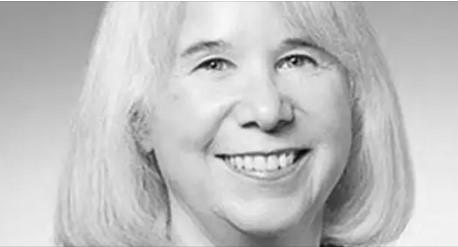(As published by the Hamilton Spectator September 30, 2022)
To promote healthy aging, action must be taken by many, writes Margaret Denton
The United Nations General Assembly declared 2021-2030 the Decade of Healthy Aging. According to the World Health Organization (WHO), “healthy ageing is about creating environments and opportunities that enable people to be and do what they value throughout their lives.” By adopting a UN-wide approach to support healthy aging, Dr. Etienne Krug, director of the department of social determinants of health at the WHO, writes: “We will be able to galvanize international action to improve the lives of older people, their families and communities.”
To promote healthy aging, action must be taken by all levels of government, civil society and the private sector, as well as by individuals themselves.
People worldwide are living longer. By 2050, the world’s population will double to over 2 billion people. According to the 2021 Canadian census, 13.9 per cent of Hamilton’s residents were aged 55 to 64, 18.3 per cent were older than 64 years, 2.6 per cent were older than 84 and the number and proportion are expected to increase over time. There is a tremendous diversity of older adults living in Hamilton, with differences by age, by racial and ethnic background, by health and ability, by sexual orientation and by financial circumstances.
Although some of the variations in people’s health as they age are genetic, physical and social environments also contribute to their physical and mental health. Physical and social environments can impact health directly or through barriers that impact opportunity. Supportive physical and social environments — including affordable, accessible and safe housing, transportation and health and community services — enable people to participate in their communities, access the services they need and do what is important to them.
The WHO Age-friendly Cities Framework is a worldwide initiative used by communities to create enabling physical and social environments. Over a thousand communities worldwide are working to become age-friendly. The Hamilton Council on Aging (HCoA), in partnership with the City of Hamilton, the Seniors Advisory Committee and in collaboration with many community partners, is working to improve Hamilton’s physical and social environments through the implementation of Hamilton’s second Plan for an Age-Friendly Community (2021-2026). The Plan outlines seven strategic goals, 61 recommendations and a copy of the plan, and the progress report for 2021 may be found on the Hamilton Council on Aging website, listed below.
The Hamilton Council on Aging (HCoA) is a non-profit organization that is working to advance positive aging — promoting the health, well-being and social participation of all older adults — by influencing attitudes, policies and programs to include their voices. HCoA acknowledges the systemic issues that affect the aging experience and recognize that some older adults face barriers to positive aging. As a community organization, HCoA is implementing several of the 61 age-friendly recommendations.
Active transportation is important for positive aging and has been identified as an important determinant of health. To encourage Hamiltonians to get around their community, HCoA will be offering a series of free Let’s Get Moving workshops, including Let’s Take the Bus (in collaboration with the City of Hamilton Transit Division and Seniors Advisory Committee) Let’s Drive the Car, Let’s Take a Walk and Let’s Ride a Bike.
For the individual, maintaining health behaviours throughout life, including eating a nutritious diet, physical exercise, engaging in social activities and keeping mentally active, contribute to improving physical and mental health and delaying dependency. HCoA offers a series of six workshops that explore the determinants of health for positive aging.
For some older adults, access to the health care system poses a challenge to obtaining health and community services. HCoA offers a three-part workshop series on Navigating the Health Care System. Topics include navigating primary care, the hospital system and community supports. The workshop objective is to increase an older adult’s capacity to give and obtain, process and understand health information and services so that the older adult can make and act on appropriate health decisions and plans.
For information on workshops offered by the Hamilton Council on Aging, please see www.coahamilton.ca.
Dr. Margaret Denton is a board member of the Hamilton Council on Aging and professor emeritus at McMaster University.
Click here for the Hamilton Spectator article.

